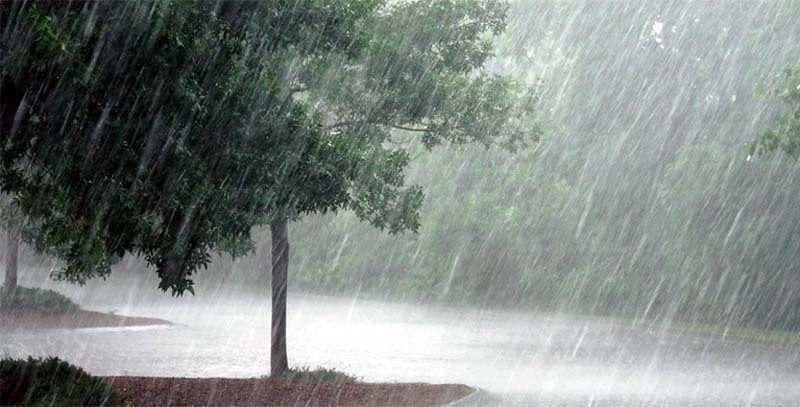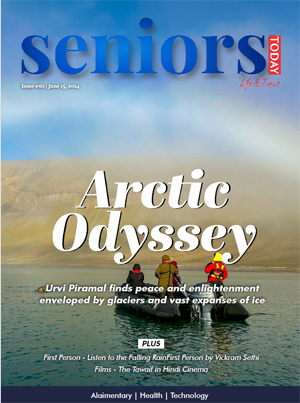Listen to the falling rain,
Listen to it fall,
And with every drop of rain,
I can hear you call,
Call my name right out loud,
I can hear above the clouds
And I’m here among the puddles,
You and I together huddle.
Nothing affects me like the rain does. That fresh smell of the earth, the pitter-patter of the raindrops, the damp air on my skin. I always wondered how I could be so sentimental and romantic about the rain. I grew up in Andheri, in North West Mumbai (then Bombay) in the fifties. The place got flooded with the shortest downpour, and there was joy in wearing a raincoat and splashing about in rainboots (gumboots). I was so fascinated with the rain that I could sit all day in our verandah, itching to run out and get wet.
The rains change the landscape; everything is fresh and green. The frogs, the snails, the shoe flowers, and in Andheri where I lived, there were snakes that came out of their holes and scurried to safety to prevent being eaten by eagles, crows, and other animals. The best days were when the schools shut down. The rains brought much relief from the heat.
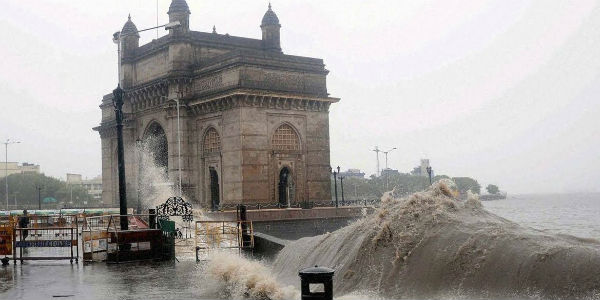
When we moved to South Mumbai, the water on the Gateway of India parapet and the Marine Drive parapet was a huge force, and everything one threw into the waters, the sea threw back at you. Now we have days when the sea returns all the ‘kachara’ that people dump and it’s a horrible sight.
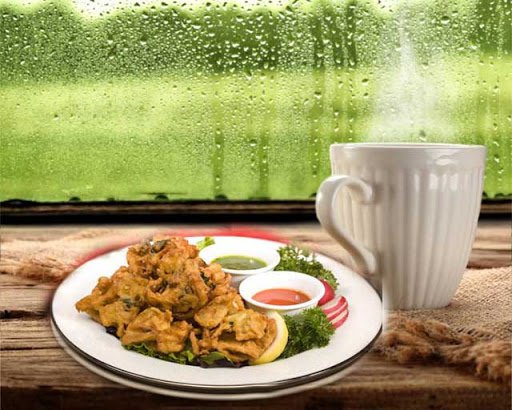
As a child, my parents would take me to Powai Lake to see the lake overflowing. A trip to Pune (then Poona), maybe even two trips to Khopoli to watch the monsoon and the numerous waterfalls in the Ghats and eat batata vada, medu vada, puri bhaji, and kanda bhajjiya (the Parsis called them Bombay bhajjiyas). The restaurant ‘Ramakant’ was a favourite. Last year, I went back after 40 years and realised some things are best left to memory. India’s favourite foods in the rain are pakoras or bhajjiyas, and every region has its own specialty. The bhajjiya is the king of the monsoon, followed by bhutta (corn). Another one of my favourites was tomato soup and garam pao (hot bread). In the North and in Central India, it was aloo puri along with bhajjiyas. But today there is a ‘significant other’ in the form of noodles with corn and egg, etc. Get onto the Mumbai-Pune ghats, and you will see many carts selling Maggi noodles.
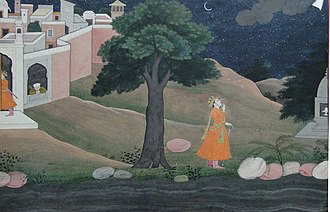
The rain has a huge contribution to Indian culture. There is poetry, Kalidas’s Meghdoot, classical music and ragas like Megh Malhar, and Surdas also created the monsoon raga Sur Malhar. His father, Ramdas, too, was a learned musician and contributed Ramdasi Malhar to the rich cornucopia of music! Other than these, monsoon ragas that found expression during this creative age were Madhu Malhar, Mishra Mel Malhar, Dhulia Malhar, and, of course, the more gentle Goud Malhar.

And then there are the Hindi movie songs. The most romantic Hindi songs are set in the rain, with the heroine getting wet, her clothes very provocatively clinging to her body. Raj Kapoor and Nargis in the immortal umbrella and rain song – Pyar Hua Ikrar Hua, Pyar Se Phir Kyun Darta Hai Dil, this is among the most iconic songs in Hindi cinema. Mumtaz in Do Raste – Chup Gaye Sare Nazare Aur Kya Baat Ho Gayi. Amitabh Bachchan and Moushumi Chatterjee in the movie Manzil – Rimjhim Gire Sawan. Madhubala in Chalti Ka Naam Gaadi – Ek Ladki Bheegi Bhagi Si, and love and longing in the movie Parakh, Sadhana – O Sajna Barkha Bahar Aayi. Every era of Hindi movies has its own popular numbers, and the public loves the rain scenes.
The rain is by no means a universally innocent force; many people live in places where the rain brings the risk of flooding and destruction. It can be a great source of fear and pain. In Mumbai, every year, there are those two days when it rains so fiercely that life comes to a standstill. The local trains stop, the buses stop, the roads are flooded, and the sea lashes with all its fury on the shore. In 2005, the rain created unbelievable havoc. Mumbai city was flooded, and there was complete chaos and destruction. The water stood on the streets for two days, and life came to a standstill.
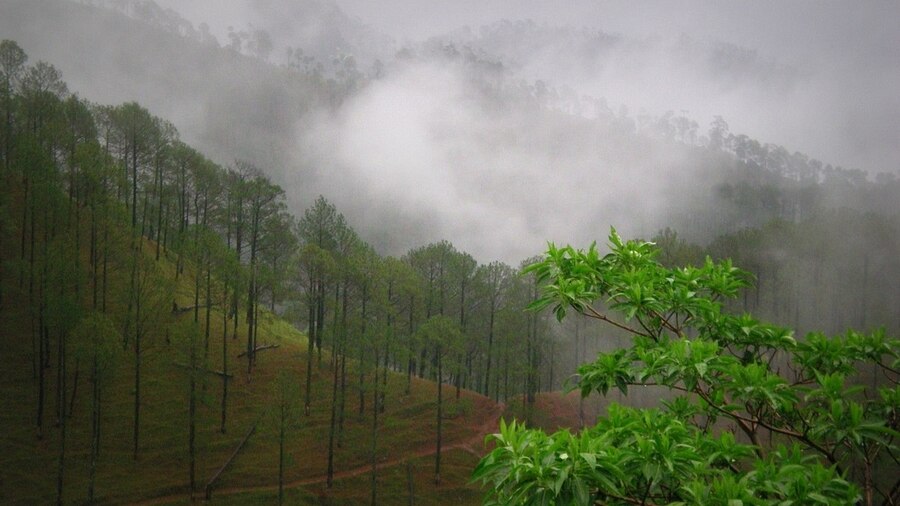
For me, the rain has a unique effect of calming the mind and soothing the body. Step outside on a rainy day, and you will see most people scurrying for cover, seeking refuge from the downpour. The rain is a cherished emotion, a source of solace in the storm. I am captivated by the allure of rainfall; if the skies are whispering secrets, I want to hear them. Scientifically, the rhythmic patter of the raindrops is known to trigger a relaxation response in the brain, reducing anxiety and promoting a sense of tranquillity. Rain sounds such as gentle showers or distant thunderstorms have been used in relaxation techniques and meditation practices to induce a sense of tranquillity and reduce stress. The rhythmic sounds of rain tend to synchronise with brain waves and promote a sense of relaxation. By listening to rain sounds before bedtime, you can create a calming bedtime routine that signals to the brain to unwind and prepare for a peaceful night’s rest.
Embracing rainy days as an opportunity for self-care and relaxation can transform the dreary weather into moments of rejuvenation and indulgence. A hot cup of coffee, a book by the window, or a warm bath can create a sense of cosiness – sensuousness and comfort amidst the rain. Creating a cosy indoor sanctuary with soft blankets, dim lighting, and your favourite music can turn a rainy day into a luxurious retreat. The fragrance of a cake being baked and comforting meals can be nourishing ways to spend rainy days and nurture your well-being.
Moreover, spending time alone in reflection during the rainy weather can help cultivate a sense of self-awareness and mindfulness. Looking at the rain falling on the faraway mountains, listening to the sound of rain, and observing the rain-soaked surroundings connect us to nature and give us a deeper sense of understanding of our place within the universe. Rainy days offer a unique opportunity for introspection and self-reflection. For me, the rain will always be an emotional haven, a place close to my heart.


